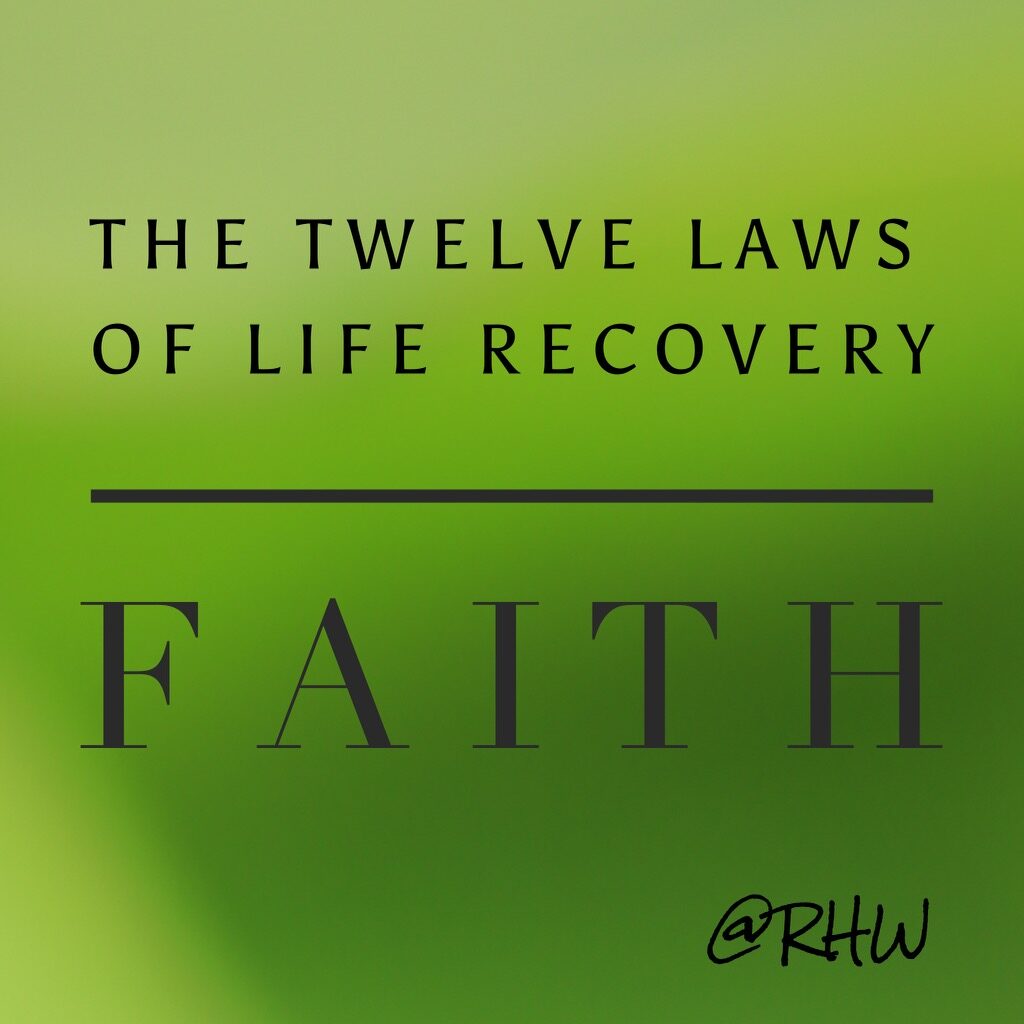REACHING HURTING WOMEN MINISTRIES OFFERS FOUR TOPICS FOR CONTEMPLATION EVERY MONTH. EACH TOPIC IS A 12-MONTH STUDY ASSIGNED TO A SPECIFIC FRIDAY OF THE MONTH. IN MONTHS WITH FIVE FRIDAYS WE REVIEW INSPIRATIONAL CHRISTIAN MEDIA.
On the third Friday of each month in 2022 we’re focusing our life recovery work on The Twelve Laws of Life Recovery: God’s Wisdom and Guidance for Your Journey with Stephen Arterburn and David Stoop. This powerful study will take our life of recovery to a level of freedom most of us haven’t yet experienced.

THE TWELVE LAWS OF LIFE RECOVERY
Each month we’re looking at a requirement that guides us to a specific result which will ultimately fill our lives with love, gratitude and the serenity we desire.
THE LAW OF FAITH
REQUIREMENT: FAITH
RESULT: HOPE
“Our progress is measured in part by how we handle our problems and trials. When we endure the hard stuff, we build strength of character, which in turn builds our faith. It is that faith that leads to hope, which is built on knowing that we are loved by God.”~ THE TWELVE LAWS OF LIFE RECOVERY
We can rejoice, too, when we run into problems and trials, for we know that they help us develop endurance. And endurance develops strength of character, and character strengthens our confident hope of salvation. And this hope will not lead to disappointment. For we know how dearly God loves us, because he has given us the Holy Spirit to fill our hearts with his love. ~ Romans 5:3-5
During struggles we need to determine what barriers are keeping us from walking in faith. We must see things from God’s perspective and stop looking at life from our human viewpoint. Battling life challenges builds our character and can bring us hope when we see God’s faithfulness through them.
Our focus scripture above helps us understand how faith can lead to hope even in the midst of challenging life circumstances. Paul shows us see the difference between our self-centered focus and God’s perspective of growth in challenging times. Let’s break it down.
We can rejoice, too, when we run into problems and trials, for we know that they help us develop endurance. ~ Romans 5:3
Problems don’t naturally seem like a time to rejoice. But the Word promises if we keep our faith in God these circumstances are bringing us something good.
endurance develops strength of character, and character strengthens our confident hope of salvation. ~ Romans 5:4
Endurance is pivotal to growing our character. During challenging times is when we grow the most spiritually. These time require us to trust God and wait for Him to change the people or circumstances that are troubling us.
this hope will not lead to disappointment. For we know how dearly God loves us, because he has given us the Holy Spirit to fill our hearts with his love. ~ Romans 5:5
While the world and life is filled with disappointments. One thing we can depend on to not disappoint: Hope that comes from God!
This hope is a strong and trustworthy anchor for our souls. ~ Hebrews 6:19
“The hope we have as a result of faith is a strong and trustworthy anchor that will hold us steady in the midst of our trials and temptations.” ~ THE TWELVE LAWS OF LIFE RECOVERY
